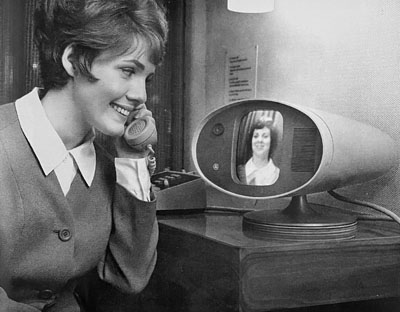Calling on the FCC to regulate video-calling technology in prisons and jails
The FCC has regulated video calling since the 1960s, and there is no reason why it should not use its authority to crack down on high prices and unfair practices in the correctional video-calling market.
by Stephen Raher, December 20, 2021
On Friday December 17, Prison Policy Initiative presented our latest arguments to the Federal Communications Commission regarding steps that the agency should take to combat financial exploitation of incarcerated people and their family members.
A decade ago, the battle for prison and jail phone justice was in its formative years. At that time the movement was focused on phone justice because telephone calling was the only technology available to most incarcerated people for real-time communication. But a lot has changed in the intervening time — new technologies are proliferating in prisons and jails, most prominently video calling.
While activists have won several notable victories in terms of bringing down outrageous phone rates, correctional video calling is completely unregulated. In the face of legal requirements to reduce phone rates, many companies are simply steering people to use more expensive video calling. Our recent filing provides the FCC with a blueprint for addressing this growing problem.

AT&T’s Picturephone provided video calling service in the 1960s. Although the product was a commercial disappointment, the Commission regulated Picturephone as a communication service without any serious objection. Source: Jon Gertner, The Idea Factory: Bell Labs and the Great Age of American Innovation (2012) (reprint courtesy of AT&T Archives and History Center).
The dominant prison telecom companies have waged a years-long misinformation campaign claiming that the FCC lacks the power to regulate video calling. But the legal arguments upon which the companies base their clams are gravely flawed. The FCC has regulated video calling since the 1960s, and there is no reason why it should not use its authority to crack down on high prices and unfair practices in the correctional video-calling market.
Our filing provides an extensive analysis that the FCC can use to reject industry arguments and assert its power to protect consumers. We remain hopeful that the FCC will rise to this challenge.
Other topics that we address in our filing include:
- The need for the FCC to act as quickly as possible to further reduce limits on voice-calling rates and ancillary fees.
- The thorny issue of jail security costs: we review the evidence gathered by the FCC and encourage the agency to not cave to the National Sheriffs’ Association demands that jails be able to charge families for a wide range of security services.
- Industry seizure of customer prepaid funds from “inactive” accounts, and the need to prevent this practice.
- The dominant company’s improper use of patents to stifle competition in the industry and the need for an investigation.



